Blog Posts Tagged AC/DC Module
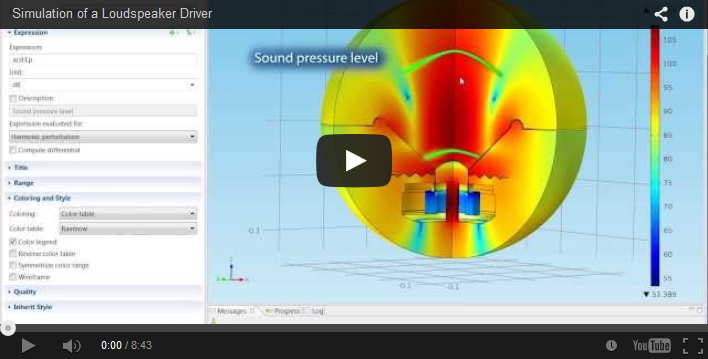
Calling All Audiophiles: Loudspeaker Analysis Video
When given the choice, we’d all prefer our loudspeakers to project perfect sound; having a phone conversation with someone who sounds like a robot caught in a windstorm is less than ideal. The quality of the sound is, naturally, dependent on how well the speaker is designed, and COMSOL Multiphysics is the perfect tool to simulate and optimize loudspeaker designs because of its easy-to-use multiphysics nature. For a loudspeaker analysis to be accurate, you must be able to simulate from […]
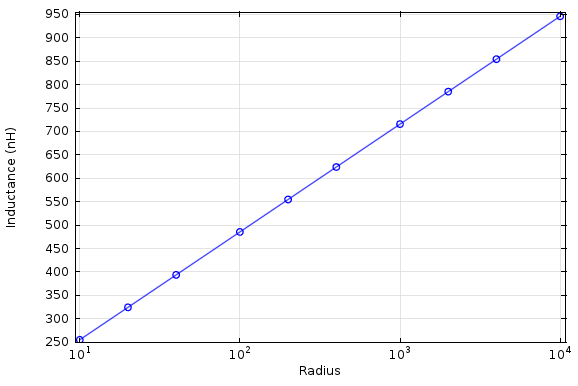
Computing the Inductance of a Straight Wire
A question that comes up occasionally is whether or not you can compute the inductance of a single straight wire. This seemingly simple question actually does not really have an answer, and gives us the opportunity to talk about a very interesting point when solving Maxwell’s equations. Anybody working in the field of computational electromagnetics should have an understanding of this key concept, as it will help you properly set up and interpret models involving magnetic fields.
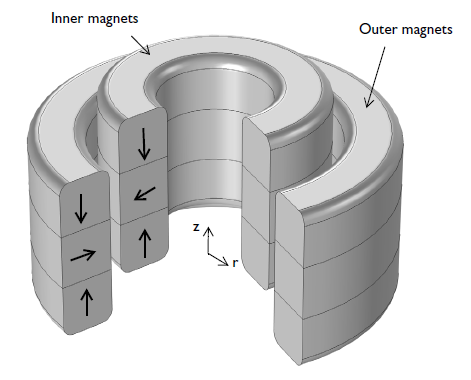
Magnetic Bearings
In the world of bearings, there are many different types to choose from. For certain applications, magnetic bearings trump their mechanical counterparts in several regards. In order to understand how the bearing will perform, using a simulation tool to calculate design parameters is a good idea.

The Graphene Revolution: Part 2
In a previous blog entry I discussed some of the exotic properties of graphene. The fact that graphene consists of a single layer of atoms means the aspect ratio of any graphene-based structure may be very high. High aspect geometries present their own array of modeling challenges.
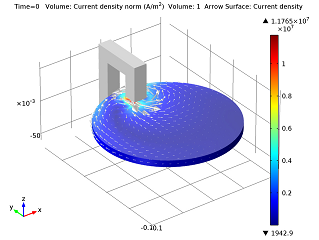
Simulating Eddy Current Brakes
Last week you saw how you can simulate the heating of a car’s brake discs. This reminded me of another type of brake — the eddy current brake (also known as magnetic brake). Whereas the other model was a study in heat transfer, eddy current brakes deal with electromagnetics.

Electrical: The Bumblebee Electrifies Anyway
“The Bumblebee Flies Anyway” was a book by Robert Cormier that I read as a young teenager. In it, Cormier describes how bumblebees are natural anomalies as they seemingly do not have the aerodynamic capability to actually fly. Their wing span and flapping speed should not provide enough lift to allow flying, and this is a fact that I have always associated with bumblebees since. Yet, this has been proven not to be true, as a closer investigation of the […]

Upgrading the Nuts and Bolts of the Electrical Grid
The electrical grid describes the network created for producing electricity, transmitting it and delivering it to the consumers. A “smart grid” is an electrical grid that gathers information on the suppliers and consumers automatically to improve efficiency and sustainability in the system. As the automated technology improves, the hardware that physically connects the electrical grid together must improve as well. This hardware, the “nuts and bolts” of the grid, is comprised of transformers, cable joints, terminations, bushings, and fault current […]
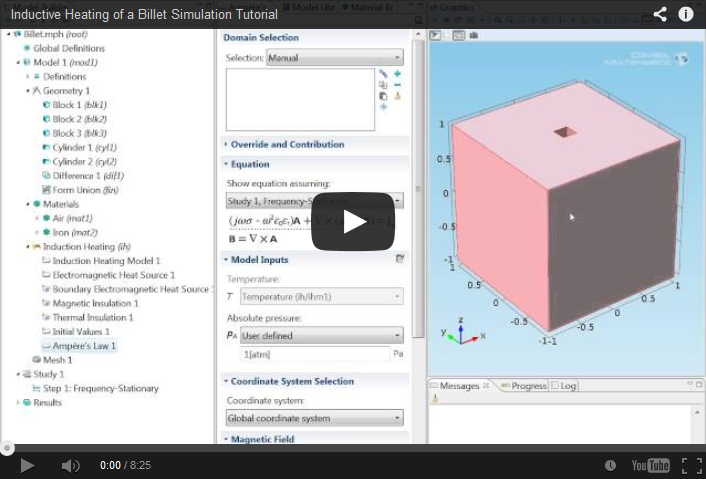
Inductive Heating of a Billet Simulation Tutorial
Induction occurs when a metal object moves in the presence of a magnetic field inducing a current in that object. The induced current causes it to heat up (called inductive heating), as all current does. Yet, simulating these two coupled physics together can be difficult to do as they are intrinsically based on different time scales. COMSOL Multiphysics is able to cleverly simulate them through combining the frequency domain modeling of the magnetic field with a stationary simulation of the […]
